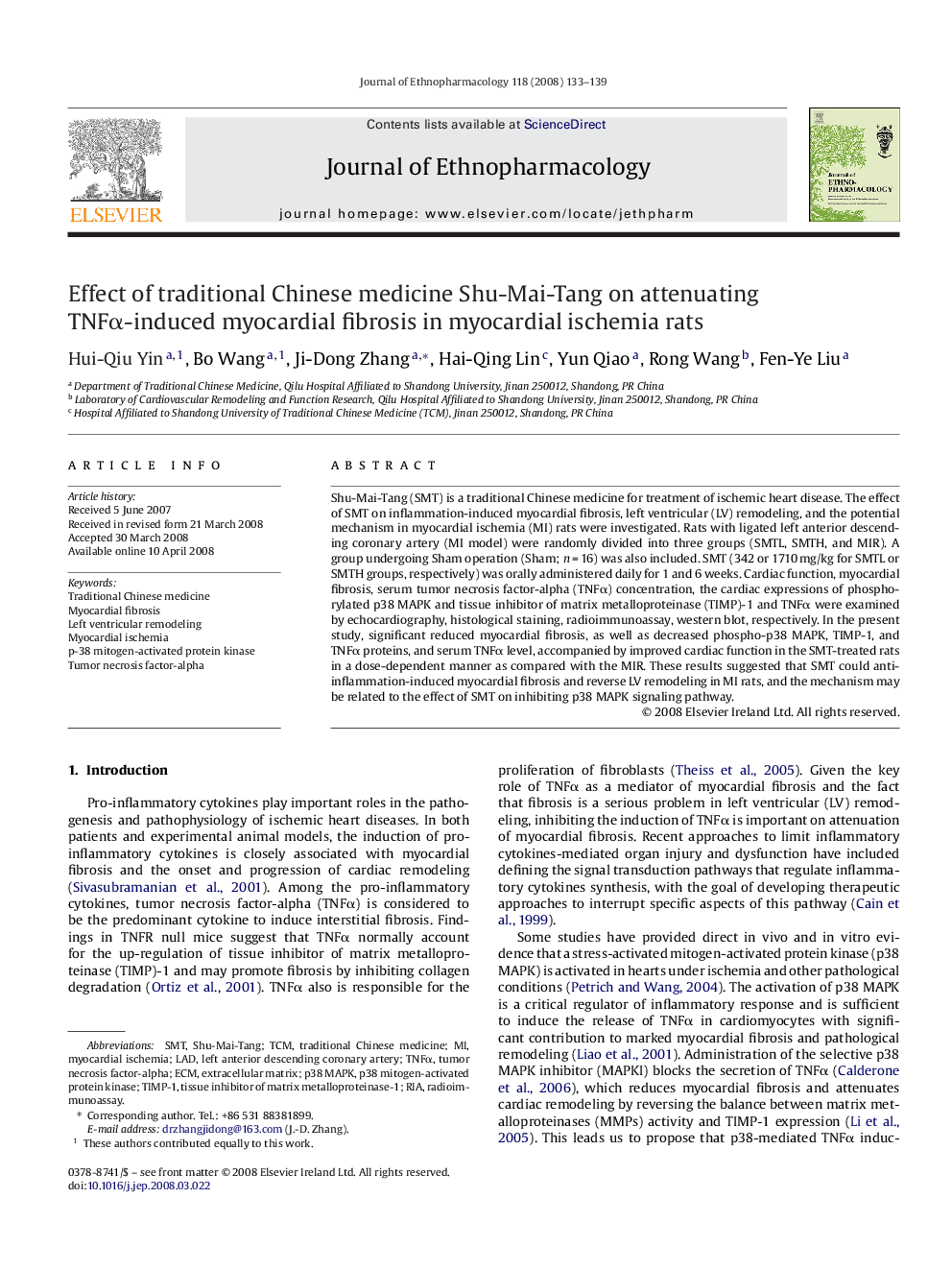| Article ID | Journal | Published Year | Pages | File Type |
|---|---|---|---|---|
| 2547774 | Journal of Ethnopharmacology | 2008 | 7 Pages |
Shu-Mai-Tang (SMT) is a traditional Chinese medicine for treatment of ischemic heart disease. The effect of SMT on inflammation-induced myocardial fibrosis, left ventricular (LV) remodeling, and the potential mechanism in myocardial ischemia (MI) rats were investigated. Rats with ligated left anterior descending coronary artery (MI model) were randomly divided into three groups (SMTL, SMTH, and MIR). A group undergoing Sham operation (Sham; n = 16) was also included. SMT (342 or 1710 mg/kg for SMTL or SMTH groups, respectively) was orally administered daily for 1 and 6 weeks. Cardiac function, myocardial fibrosis, serum tumor necrosis factor-alpha (TNFα) concentration, the cardiac expressions of phosphorylated p38 MAPK and tissue inhibitor of matrix metalloproteinase (TIMP)-1 and TNFα were examined by echocardiography, histological staining, radioimmunoassay, western blot, respectively. In the present study, significant reduced myocardial fibrosis, as well as decreased phospho-p38 MAPK, TIMP-1, and TNFα proteins, and serum TNFα level, accompanied by improved cardiac function in the SMT-treated rats in a dose-dependent manner as compared with the MIR. These results suggested that SMT could anti-inflammation-induced myocardial fibrosis and reverse LV remodeling in MI rats, and the mechanism may be related to the effect of SMT on inhibiting p38 MAPK signaling pathway.
